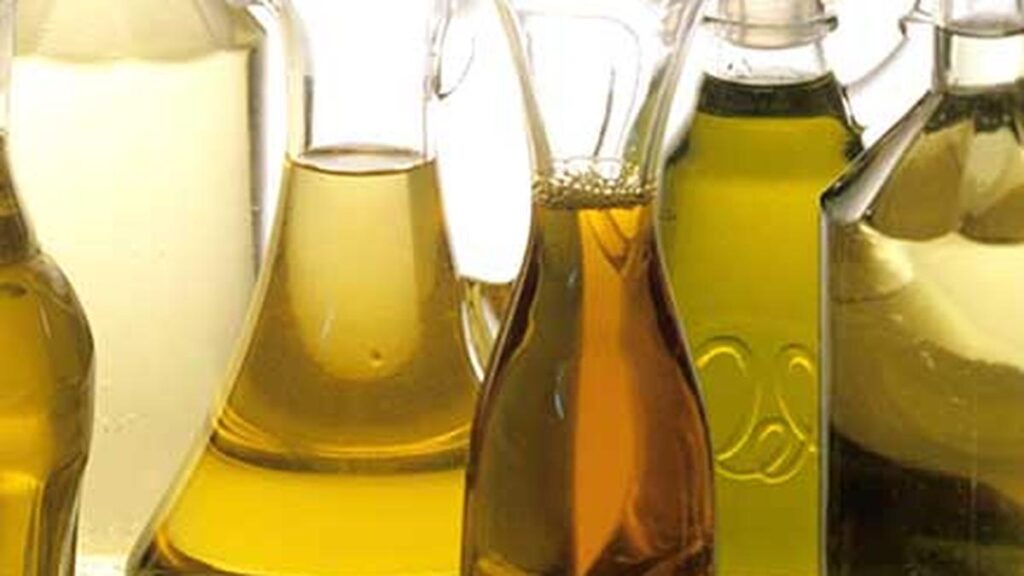The debate on how much edible oil, and what kind of oil, is good or bad for health seems never-ending. But the trick here is finding the right balance as moderation is key, say experts.
Importance of fats in a balanced diet
Meenakshi Bajaj, dietician, Tamil Nadu Government Multi Super Speciality Hospital, said it is essential to understand that all three macronutrients (carbohydrates, fats, and proteins) play a crucial role in an individual’s health. “Fat is an indispensable component of a balanced diet, necessary for the absorption of fat-soluble vitamins, synthesis of hormones, as well as several vital physiological and metabolic functions in the body. Dietary fat comprises both visible and invisible sources. Visible sources include fats and oils, ghee, vanaspati and butter used for cooking. Invisible sources encompass whole eggs, milk and milk products, nuts and oilseeds, meat, poultry, and fish,” she said.
Edible fats and oils have benefits and drawbacks, she said, adding: “There are three types of fatty acids present in our diet: saturated fatty acids (SFA), monounsaturated fatty acids (MUFA), and polyunsaturated fatty acids (PUFA). A healthy diet should incorporate varied sources of fats and oils, maintaining an ideal ratio of healthy fats (mono and polyunsaturated fats) to unhealthy fats (saturated fat).”

Choosing and using oils wisely
Daphnee Lovesley, chief clinical dietitian, Apollo Hospitals, Chennai, points out, “Oils are essential in our diet as they provide essential fatty acids that the body cannot produce. Like everything else, moderation is key. Oils are calorie-dense, providing about 9 calories per milliliter, and in Indian cooking, there is often a tendency to use them generously, particularly in fried foods. Reducing oil intake by four to five teaspoons per person per day can make a big difference. Nuts like almonds, walnuts, or peanuts can be enjoyed in moderation—a handful a day is sufficient.”
The National Institute of Nutrition (NIN) suggests incorporating a diverse variety of oil seeds, nuts, and whole grains, Ms. Bajaj pointed out. “Studies indicate that consuming nuts like almonds and cashews can improve lipid profiles and reduce blood pressure in individuals with type 2 diabetes. However, moderation is key,” she said.
Blending oils to achieve a balance of fatty acids and antioxidants is beneficial, she said, noting: “NIN advises combining oils such as groundnut, sesame, rice bran, and mustard oils, which have been shown to reduce the risk of type 2 diabetes and metabolic syndrome.”
Health risks associated with reheated oils and trans fat
Ms. Lovesley further adds. “Oils rich in monounsaturated fats—such as sesame oil, groundnut oil, and rice bran oil—are good options and are readily available locally. Using a blend of oils is often considered a safer and more balanced approach.”
However, reusing oil is harmful, she adds. “Repeated heating at high temperatures causes chemical changes that lead to the formation of polycyclic aromatic hydrocarbons, which are carcinogenic. Reheated oils have been linked to an increased risk of cancer, cardiovascular diseases, and elevated cholesterol and blood pressure levels. When consuming food outside, it is difficult to know how many times the oil has been reheated—this could contribute to inflammation and, subsequently, obesity.”
Ms. Bajaj emphaised that trans fats from reheated oil, bakery items (such as cakes, pizza, puffs, pastries, biscuits, cookies, doughnuts), and partially hydrogenated edible fats in packaged and processed snacks increase triglycerides and LDL cholesterol (bad cholesterol), lower HDL cholesterol (good cholesterol), and heighten the risk of cancers and cardiovascular diseases. Check food labels on ready-to-eat foods for partially hydrogenated fats (unhealthy fats), she added .
The impact of cooking methods on the nutritional quality of oils should be considered. “Oils exposed to high temperatures for extended periods can lose antioxidants and generate toxic compounds and trans fats. Repeated heating of cooking oils produces harmful compounds and should be avoided. On a household level, vegetable oil once used for frying should be filtered and reused for sautéing purposes within the next 24 hours. Remove food particles from oil during frying before they turn black. Oils repeatedly heated should not be mixed with fresh oil but can be used for seasoning,” she said.

Healthy eating as preventive care
With obesity being a major public health concern, it’s important to recognise the key contributing factors: poor dietary habits, a sedentary lifestyle, and inadequate sleep. Stress can also play a role in some individuals. “However, we should focus on what we can control—eating balanced meals, staying physically active, and maintaining good sleep hygiene—to prevent obesity. Childhood obesity is growing too, making it crucial to encourage healthy habits early in life,” Ms. Lovesley said.
Ms. Bajaj reiterates that intake of oils and fats should be moderated. “It’s not about restriction; it’s about smart and healthy choices for improved metabolic health. By making informed choices regarding the types and quantities of fats in our diets, we can promote better health and well-being for ourselves and our families,” she said.
Published – April 24, 2025 05:52 pm IST

